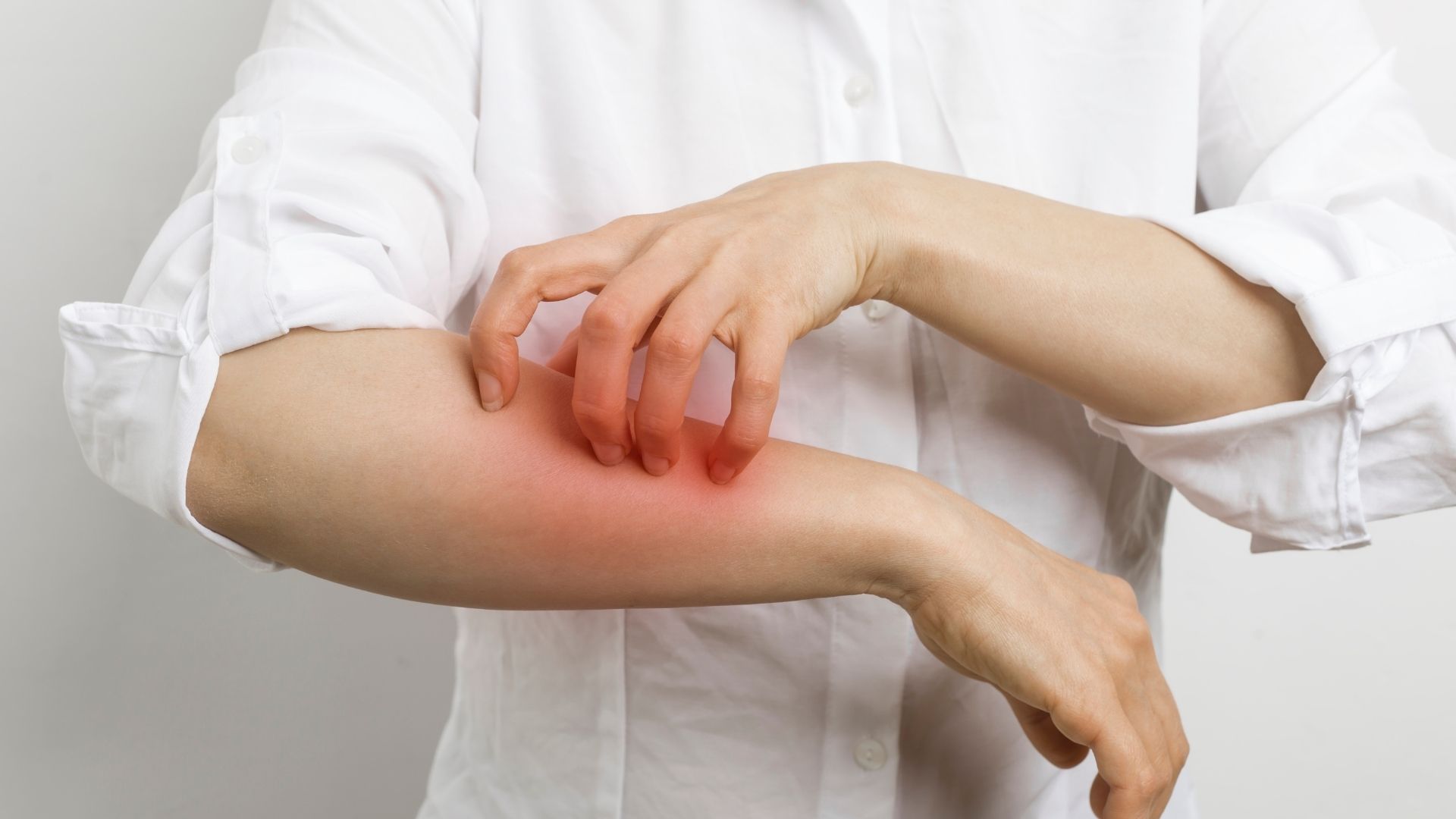Eczema can be frustrating, but with the right care, its symptoms can be effectively managed. If you’re experiencing persistent itching, dryness, or flare-ups, DoctorTora is here to provide expert guidance and treatment from the comfort of your home.
Causes, Symptoms, and How DoctorTora Can Help
Introduction
Eczema is a common skin condition that affects millions of people worldwide. It causes red, itchy, and inflamed skin, often leading to discomfort and frustration. While eczema is not contagious, it can significantly impact a person’s quality of life. Fortunately, with the right care, eczema can be managed effectively. If you or a loved one is struggling with eczema, DoctorTora’s telemedicine services can connect you with a doctor quickly and conveniently from the comfort of your home.
What is Eczema?
Eczema is a general term for a group of conditions that cause the skin to become inflamed, itchy, and irritated. It is not the same as atopic dermatitis, although atopic dermatitis is one of the most common types of eczema. Other types of eczema include:
- Atopic dermatitis – Often starts in childhood and is linked to allergies and asthma.
- Contact dermatitis – Caused by exposure to irritants or allergens.
- Dyshidrotic eczema – Affects the hands and feet, leading to itchy blisters.
- Nummular eczema – Characterized by round, coin-shaped spots on the skin.
- Seborrheic dermatitis – Often occurs on the scalp and face, leading to flaky patches.
- Stasis dermatitis – Develops due to poor circulation, usually in the lower legs.
Eczema can appear anywhere on the body but is most common on the face, hands, elbows, and knees. It can affect people of all ages, but it is particularly common in children. Many people with eczema also have a history of allergies, asthma, or hay fever, suggesting a link between these conditions.
Common Symptoms and Causes of Eczema
Symptoms:
- Persistent itching
- Red or brownish patches on the skin
- Dry, cracked, or scaly skin
- Swelling and inflammation
- Oozing or crusting (in severe cases)
- Thickened skin from repeated scratching
Causes:
While the exact cause of eczema is unknown, it is believed to be linked to a combination of genetic and environmental factors. Common triggers include:
- Allergens such as pollen, pet dander, and dust mites
- Irritants like soaps, detergents, and perfumes
- Stress and emotional factors
- Weather changes, particularly cold and dry climates
- Hormonal fluctuations
- Certain foods, such as dairy or nuts, in some individuals
How is Eczema Diagnosed?
Doctors typically diagnose eczema through a physical examination and by reviewing a patient’s medical history. There are no specific lab tests for eczema, but allergy testing or skin patch tests may be conducted to identify triggers. If symptoms persist or worsen, consulting a healthcare professional is essential.
How is Eczema Treated?
Eczema treatment focuses on relieving symptoms and preventing flare-ups. Depending on the severity of the condition, a doctor may recommend:
Common Medications:
- Moisturizers (emollients) to keep skin hydrated and prevent dryness.
- Topical corticosteroids to reduce inflammation and itching.
- Antihistamines to relieve itching and help with sleep disturbances.
- Calcineurin inhibitors (such as tacrolimus or pimecrolimus) for sensitive areas like the face and neck.
- Antibiotics if there is a bacterial infection due to excessive scratching.
- Oral corticosteroids for severe cases, prescribed for short-term use.
- Biologic therapies for persistent eczema that does not respond to standard treatments.
Self-Care Instructions for Eczema
In addition to medical treatment, managing eczema at home is crucial. Follow these self-care tips:
- Keep skin hydrated by applying moisturizer multiple times a day.
- Use mild, fragrance-free soaps and detergents to avoid skin irritation.
- Take lukewarm baths or showers and pat skin dry instead of rubbing.
- Wear soft, breathable fabrics like cotton to prevent irritation.
- Avoid scratching by keeping nails short and using anti-itch creams.
- Manage stress levels through relaxation techniques like yoga or meditation.
- Identify and avoid triggers to prevent flare-ups.
When to Seek Care with Telemedicine for Eczema
If you experience persistent eczema symptoms, DoctorTora’s telemedicine services can help. Our primary care doctors provide expert guidance and prescriptions when necessary. Follow these steps to seek care:
- Download the DoctorTora app from the App Store or Google Play.
- Select “skin problems” from the home screen.
- Queue for an immediate consultation or book an appointment for a future time.
- Receive a detailed consultation report with a treatment plan and prescription if needed.
DoctorTora allows you to consult a doctor from anywhere, saving you the time and hassle of visiting a clinic.
When to Seek Urgent Care at a Physical Hospital for Eczema
While most cases of eczema can be managed through telemedicine, some situations require in-person medical attention. Seek urgent care if you experience:
- Severe skin infections with pus, blisters, or fever
- Rapidly spreading rashes
- Extreme pain or swelling
- Signs of an allergic reaction, such as difficulty breathing or swelling of the face
In such cases, visiting a hospital is the safest option to prevent complications.
FAQ
Can eczema be cured?
Eczema is a chronic condition, meaning there is no permanent cure. However, proper treatment can help manage symptoms effectively.
Is eczema contagious?
No, eczema is not contagious. It cannot be spread from person to person.
Can diet affect eczema?
Certain foods may trigger eczema flare-ups in some individuals. If you suspect a food allergy, consult a doctor for guidance.
What is the best moisturizer for eczema?
Look for fragrance-free, hypoallergenic moisturizers containing ingredients like ceramides, shea butter, or glycerin.
Can stress cause eczema?
Stress does not directly cause eczema, but it can trigger flare-ups or make symptoms worse.
Related Articles
For more information on skin conditions and allergies, check out these articles:
- Allergy: Causes and Treatment
- Skin Infections: Common Types and How to Treat Them
- Psoriasis vs. Eczema: How to Tell the Difference



